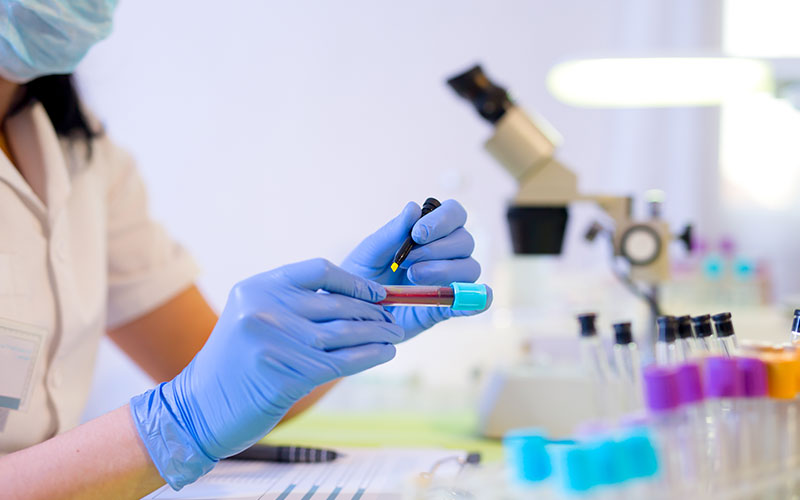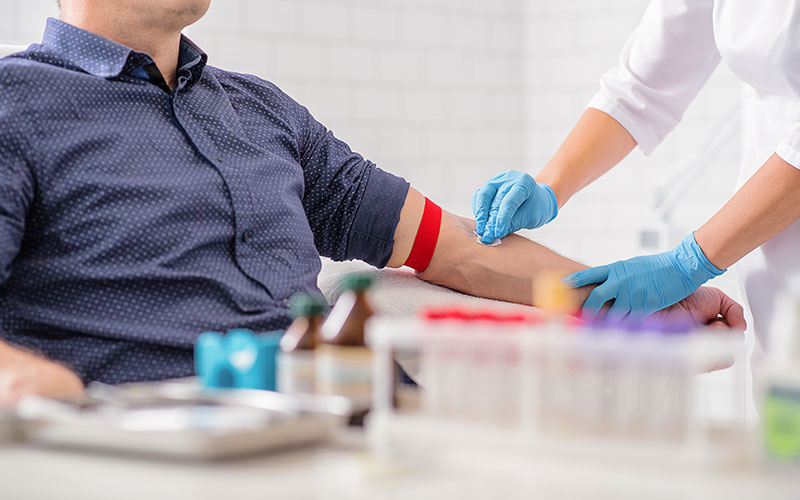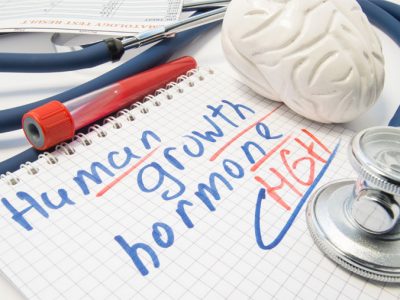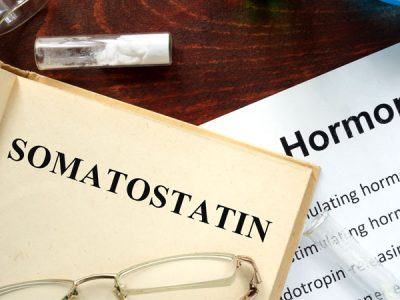- Home
- Growth Hormone
- Growth Hormone
- Growth Hormone Deficiency
- Growth Hormone Therapy
- Growth Hormone Injections
get startedThe Most Effective Hormone Replacement TherapiesIGF-1 Blood Testing for Growth Hormone Deficiency
We use an IGF-1 blood test to make a diagnosis of age-related growth hormone deficiency.
Insulin-Like Growth Factor 1 (IGF-1) is a naturally occurring protein that stimulates protein synthesis. It is sometimes also called somatomedin-C. Your growth hormone levels, and your IGF-1 levels are closely related. It is the presence of growth hormone that stimulates the production of IGF-1 by the liver. Therefore, if your IGF-1 level is low, it can be used as an accurate indicator of a growth hormone deficiency.
Your IGF-1 and your other growth hormone levels and factors all decrease as you age. The IGF-1 blood test can give clear indication of age-related growth hormone deficiency (GHD).
Blood Tests for Growth Hormone Deficiency
Making a proper diagnosis of age-related growth hormone deficiency starts with taking a complete medical history and then doing a physical exam. After that, if your doctor suspects that you might have a growth hormone deficiency, they will schedule a diagnostic blood test to determine the extent of growth hormone (GH) deficiency.
Our doctors prefer to use the IGF-1 binding protein level test.
There are other tests for GH deficiency which may include:
- Blood tests to measure the amount of growth hormone levels in the blood
- Blood tests to measure other levels of hormones the pituitary gland produces
- GHRH-arginine test
- Growth hormone stimulation test
- Insulin tolerance test
Other Exams and Tests to Diagnose Growth Hormone Deficiency
In addition to the IGF-1 blood test we use to diagnose GH deficiencies doctors may use several other tests to diagnose growth hormone deficiency. These include:
- A dual-energy x-ray absorptiometry (DXA) scan measures your bone density.
- An MRI of the brain may be taken so your doctor can see the pituitary gland and hypothalamus.
- Hand x-rays (typically of the left hand) can also help show your doctor your bones. The shape and size of bones change as a healthy person grows. Your doctor can see bone abnormalities with this x-ray.
- X-rays of the head can show any problems with the bone growth of your skull.
However, we find the IGF-1 blood test to be a simple and very effective way to detect age-related growth hormone deficiency.
How to Prepare For The Test
To prepare for the IGF-1 growth hormone blood test:
- You may be asked not to exercise or eat anything for 10 hours before the test. Water is allowed.
Certain medicines can affect your growth hormone test results, such as corticosteroids and estrogen (including birth control pills). You may be asked to stop taking these medications prior to the IGF-1 test.
How Much Should I Expect to Pay for an GH (IGF-1) Blood Test
We work with the highest quality and most well-respected labs to do your GH blood testing. Generally, you should expect to pay about $90 for a typical IGF-1 protein binding blood test.
Watch your emails or check our website regularly for specials on GH blood testing!
What Do the Results of Your IGF-1 Growth Hormone Test Mean
Our doctors use the IGF-1 test to detect growth hormone deficiency. If your IGF-1 level comes back low and symptoms associated with GHD are also present, a diagnosis of GH deficiency will be provided.
Results of IGF-1 are given in nanograms per milliliter (ng/mL) and vary by age.
Adult Males Adult Females Age ng/mL Age ng/mL 18 years 109-527 18 years 114-493 19 years 104-484 19 years 105-441 20 years 98-443 20 years 97-398 21-25 years 83-344 21-25 years 84-323 26-30 years 75-275 26-30 years 77-271 31-35 years 71-241 31-35 years 73-244 36-40 years 69-226 36-40 years 68-225 41-45 years 64-210 41-45 years 62-205 46-50 years 59-201 46-50 years 56-194 51-55 years 56-201 51-55 years 53-191 56-60 years 51-194 56-60 years 45-173 61-65 years 47-191 61-65 years 41-168 66-70 years 46-195 66-70 years 39-168 71-75 years 42-187 71-75 years 36-166 76-80 years 39-184 76-80 years 35-168 80-85 years 37-182 80-85 years 35-179 85-90 years 35-182 85-90 years 33-179 Source: Mayo Medical Laboratories
What If My IGF-1 Levels Are Low?
IGF-1 and GH are intricately linked. It is very unlikely that you would be IGF-1 deficient, without also being growth hormone deficient. GHD is usually treated with growth hormone replacement therapy. However, depending on your symptoms some patients with GHD may be prescribed supplemental IGF-1 alone or in combination with GH injections.
Now that you know a little bit more about growth hormone blood tests, why not contact us and find out more about the many life-changing benefits of growth hormone therapy.
read this next
Is There a Blood Test for Growth Hormone Deficiency?
Men, women, and children can all suffer from growth hormone deficiency, or GHD. Regardless of your age or gender, the diagnostic tests for GHD…read moreHow Do I know If I Have a Growth Hormone Deficiency?
Human growth hormone, or HGH, is one of your body’s most critical hormones. How do you know if you have a growth hormone deficiency?…read moreHow To Increase Growth Hormone And Testosterone
Testosterone and Human Growth Hormone (HGH) are two hormones critical to maintaining strength, vitality and over all health. What do you think of when…read more - Growth Hormone Therapy































